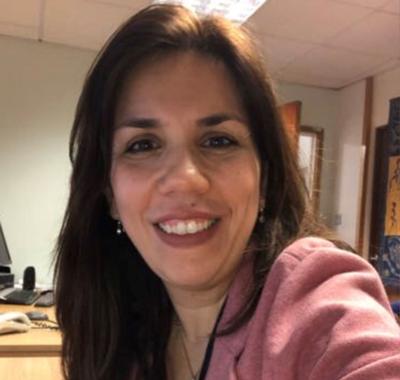
One of the UK's leading advocates for greater awareness and further investigation of Long COVID is amongst a list of this year's most influential from around the world.
Dr Nisreen Alwan, public health doctor and Associate Professor in Public Health at the University of Southampton, is amongst this year's BBC 100 Women. For this year, the theme of the list is 'women who led change in 2020'.
Known for her research into the health and wellbeing of women and children, Dr Alwan has spent most of 2020 focused on the COVID-19 pandemic where she has raised awareness of the need for countries to measure and address long-term ill health from the virus – also known as Long COVID - and not only mortality.
Dr Alwan has effectively used social media, particularly Twitter, to express her views on Long COVID, mental health and inequalities during the pandemic and to gather the experiences of others who, like her, may have had COVID-19 earlier this year when widespread testing wasn't available and could be at risk of long-term conditions as a result.
"I saw a huge gap in the way the COVID-19 pandemic was measured and tackled. We were only seeing deaths and lab-confirmed cases counted. No one was tracking illness from COVID-19. Combining my personal experience with my professional knowledge, I stressed the importance of counting Long COVID."
"Throughout the year, I've spent a great deal of time communicating with people via my Twitter account," she explains. "Although I appreciate that social media has negatives, I am really impressed by the amount of kindness expressed that really offers a lot of support for people – especially in our current context where people aren't meeting face-to-face – so social media has become an important outlet to feel that social connection, compassion and empathy between people."
"All of us have a role on social media to encourage this positive side and that means people can be allowed to be vulnerable there, including us as scientists and professionals because we're just normal people," Dr Alwan continues. "I've shown vulnerability on social media and what you get in response is compassion, understanding and sharing. Others see these interactions and feel there is still good in this world and that's really great for community solidarity that we need to bring out in these difficult times."
Dr Alwan's frequent calls for further resources and investigations into the effects of Long COVID have been a prevalent theme of her engagements on social media, mainstream media, webinars and journal articles. Whilst she appreciates that Long COVID is a complex issue, she stresses the need to define the illness more clearly, and quickly, in order to manage it more effectively.
"That's what I'm focusing on mostly now," Dr Alwan emphasises. "I've started research to define how common Long COVID is and how we can characterise it in a clinical sense so we can have some inclusive case definitions that can be used clinically and also to use for surveillance to count and estimate the burden of the problem."
The BBC 100 Women list, now in its eighth year now, features women from around the world who have led change this year in STEM, arts, media, economics, education including Sanna Marin, the Prime Minister of Finland;,NASA astronaut Kathy Sullivan and British vaccinologist Professor Sarah Gilbert from Oxford's Jenner Institute.






